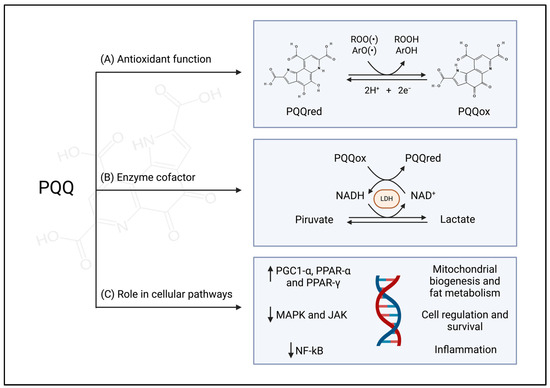Is PQQ good for the brain?
In the field of nutritional neuroscience, few compounds have attracted as much interest as Pyrroloquinoline Quinone (PQQ). This naturally occurring compound, found in certain foods and available as a dietary supplement, has been hailed as a powerful antioxidant and a stimulator of mitochondrial biogenesis. But beyond its systemic health effects, one question continues to capture the attention of researchers and health enthusiasts alike: Is PQQ good for the brain?
The answer appears to be a resounding yes. Emerging studies suggest that PQQ plays a vital role in protecting brain cells, enhancing cognitive performance, and reducing the risk of age-related neurological decline. Let’s take a deeper look at how PQQ works, why it’s important for brain health, and what current science reveals about its potential benefits.
Understanding the Brain’s Energy Demands
The human brain is an energy-intensive organ. Despite representing only about 2% of body weight, it consumes nearly 20% of the body’s total energy. This energy is primarily generated by mitochondria, the tiny powerhouses within cells. As we age, mitochondrial function tends to decline, contributing to fatigue, slower thinking, memory loss, and increased vulnerability to neurodegenerative diseases.
This is where PQQ steps in. Unlike many antioxidants that simply neutralize free radicals, PQQ has the unique ability to stimulate the creation of new mitochondria — a process called mitochondrial biogenesis. By improving mitochondrial function, PQQ ensures that neurons (brain cells) have the energy supply they need to support learning, memory, and overall cognitive function.
How PQQ Supports Brain Health
1. Mitochondrial Biogenesis in Neurons
Healthy mitochondrial activity is essential for brain performance. Research shows that PQQ can upregulate genes involved in mitochondrial formation, effectively giving neurons more energy capacity. This makes PQQ particularly valuable for age-related cognitive decline, where energy supply to neurons is often compromised.
2. Potent Antioxidant Protection
The brain is highly vulnerable to oxidative stress, which damages neurons and accelerates neurodegenerative diseases like Alzheimer’s and Parkinson’s. PQQ functions as a redox-cycling antioxidant, meaning a single molecule can repeatedly neutralize free radicals. This sets it apart from conventional antioxidants like vitamin C, which can only act once before being depleted.
3. Nerve Growth Factor (NGF) Stimulation
One of PQQ’s most unique effects is its ability to stimulate the production of nerve growth factor (NGF). NGF is a protein that supports the growth, maintenance, and repair of neurons. Increased NGF activity means stronger connections between brain cells and enhanced brain plasticity — the ability to learn, adapt, and form new memories.
4. Cognitive Enhancement
Human studies indicate that PQQ supplementation can improve memory, attention, and processing speed. For example, in a Japanese clinical trial, participants who took PQQ for 12 weeks experienced significant improvements in short-term memory and mental clarity compared to placebo groups. When combined with Coenzyme Q10 (CoQ10), PQQ showed even greater improvements in cognitive performance.
5. Protection Against Neurotoxins
PQQ has demonstrated protective effects against amyloid-beta proteins, the harmful plaques associated with Alzheimer’s disease. Animal studies suggest that PQQ reduces plaque buildup and prevents neurotoxicity, offering hope as a preventive measure against dementia.
6. Improved Mood and Sleep
Interestingly, PQQ supplementation has also been linked to better sleep quality, lower stress, and improved mood regulation. Since stress and poor sleep are major contributors to cognitive decline, this makes PQQ an even more valuable brain-support nutrient.
PQQ and Age-Related Cognitive Decline
One of the most exciting areas of PQQ research is its potential role in slowing or preventing neurodegenerative diseases. While no supplement is a cure, the mechanisms of PQQ — from protecting mitochondria to reducing oxidative damage — address some of the root causes of age-related brain deterioration.
By supporting healthy mitochondrial function, reducing inflammation, and protecting neurons from toxic proteins, PQQ offers a multi-faceted approach to preserving brain health well into old age.

How PQQ Works as an Antioxidant in the Brain
Unlike many antioxidants that get used up after neutralizing one free radical, PQQ has the remarkable ability to undergo multiple redox cycles. This means it can repeatedly neutralize oxidative molecules without becoming inactive itself.
For the brain, this is crucial: neurons are highly sensitive to oxidative damage, and cumulative free radical stress is strongly linked to cognitive decline and diseases like Alzheimer’s. By maintaining a long-lasting protective antioxidant shield, PQQ helps neurons stay functional and resilient.
How Much PQQ Do You Need?
Typical PQQ supplements provide 10–40 mg per day, though some clinical studies use up to 60 mg. It’s often taken alongside CoQ10, since the two compounds work synergistically to enhance mitochondrial health.
Dietary sources of PQQ include fermented soy (natto), kiwi, green tea, spinach, and parsley, but the levels are relatively low compared to what’s used in supplementation.
Is PQQ Safe for the Brain?
Safety is an important consideration for any supplement. Current evidence suggests that PQQ is well-tolerated in humans, with no major side effects reported at commonly used doses. However, because research is still emerging, it is always best to consult with a healthcare professional before beginning supplementation, especially for individuals with neurological conditions or those who are pregnant.
Conclusion
So, is PQQ good for the brain? Absolutely. By stimulating mitochondrial biogenesis, reducing oxidative stress, promoting nerve growth, and enhancing memory and learning, PQQ shows tremendous promise as a neuroprotective and cognitive-supporting compound.
While more large-scale human studies are needed, the existing research strongly supports PQQ’s role in protecting the brain, preserving mental sharpness, and potentially lowering the risk of neurodegenerative diseases. For individuals seeking to optimize brain health and longevity, PQQ represents one of the most exciting discoveries in nutritional science.






